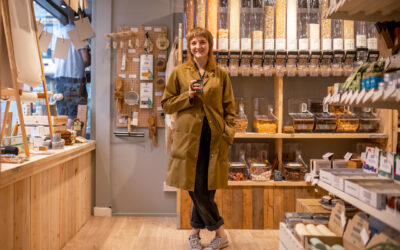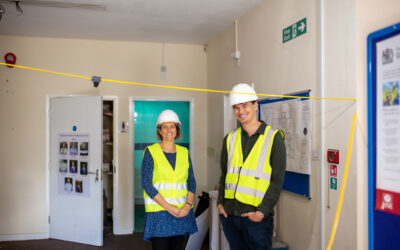Makespace Oxford x Stir to Action
Earlier this month our friends at Stir to Action hosted their debut festival The ABCs of the New Economy at the Arts Mansion in Bristol. We were delighted to be a part of it. This two-day interactive event centred around the theme ‘Battling for the Ownership of the UK’s New Social Infrastructure’ and brought together hundreds of individuals committed to transforming their local economy.
Makespace co-founder and director, Andy Edwards, spoke alongside a panel of Community Asset Leaders to discuss ‘Unlocking space: ‘meanwhile use’ to community ownership’. The panel was chaired by Bex Trevalyan Co-founder of Platform Places and Library of Things, and included Juliet Can from Stour Trust CLT and Kathryn Chiswell Jones from Artspace Lifespace.
We were also due to be joined by Victoria Barrow-Williams, Cofounder of People Dem Collective, who sadly was unable to join due to illness. Check out their amazing work creating space in Margate here.
The panellists shared their journeys and responded to the question: How can we use ‘meanwhile-use’ as a catalyst to bring about wider systemic change?
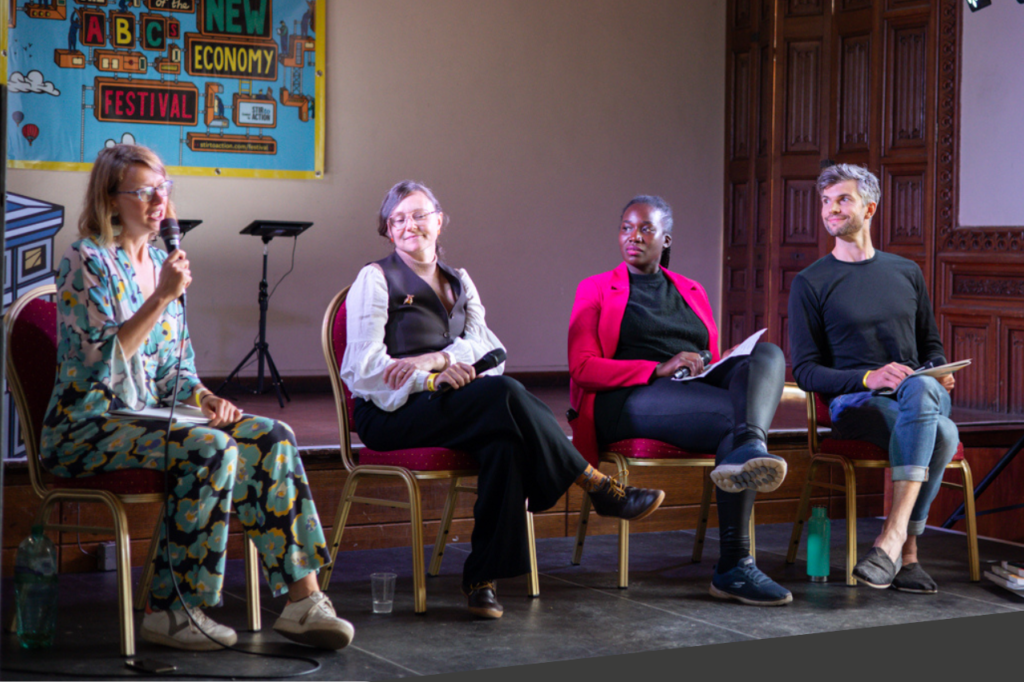
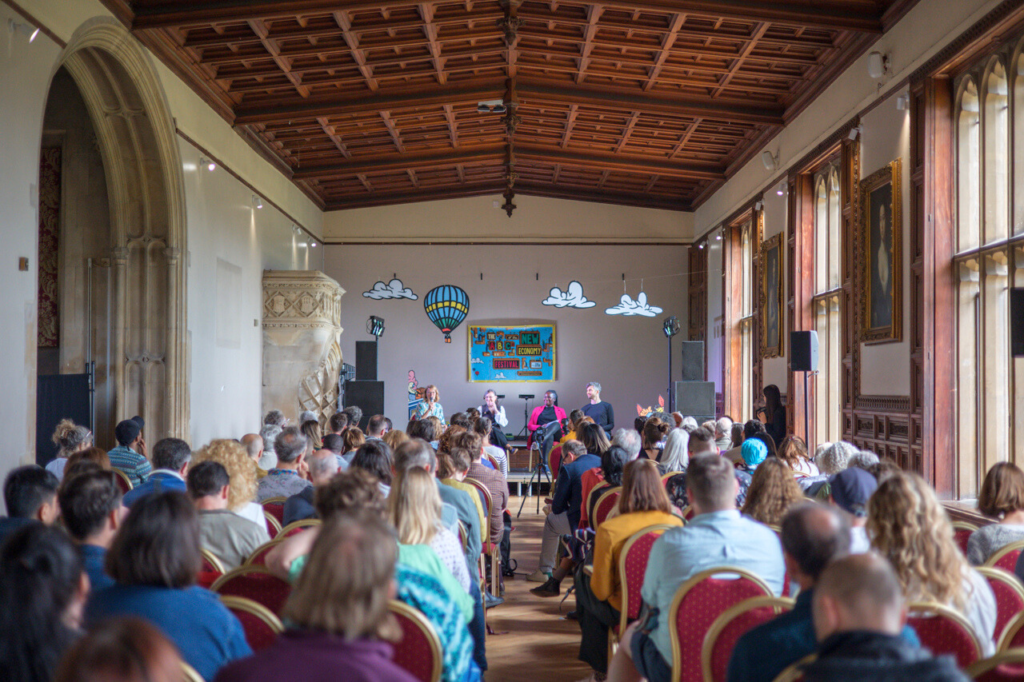
Bex Trevalyan, Kathryn Chiswell Jones, Juliet Can and Andy Edwards on stage in the main hall at Stir to Action Festival
Their discussion highlighted the need to democratise the ownership of space to create more inclusive and sustainable communities. Together, they emphasised the importance of localising decision-making to prioritise community involvement, and explored the complexities of transitioning from temporary ‘meanwhile’ leases into long-term community ownership.
“For us, meanwhile is an opportunity to sort of step into ownership within our community. It is an opportunity for us to feel some sense of power, some sense of solidarity for us to come together, to convene and rethink how we want our communities to regenerate, to develop, and then to influence various policies and designs and ambitions for our neighbourhoods.”
– Juliet Can, Stour Trust
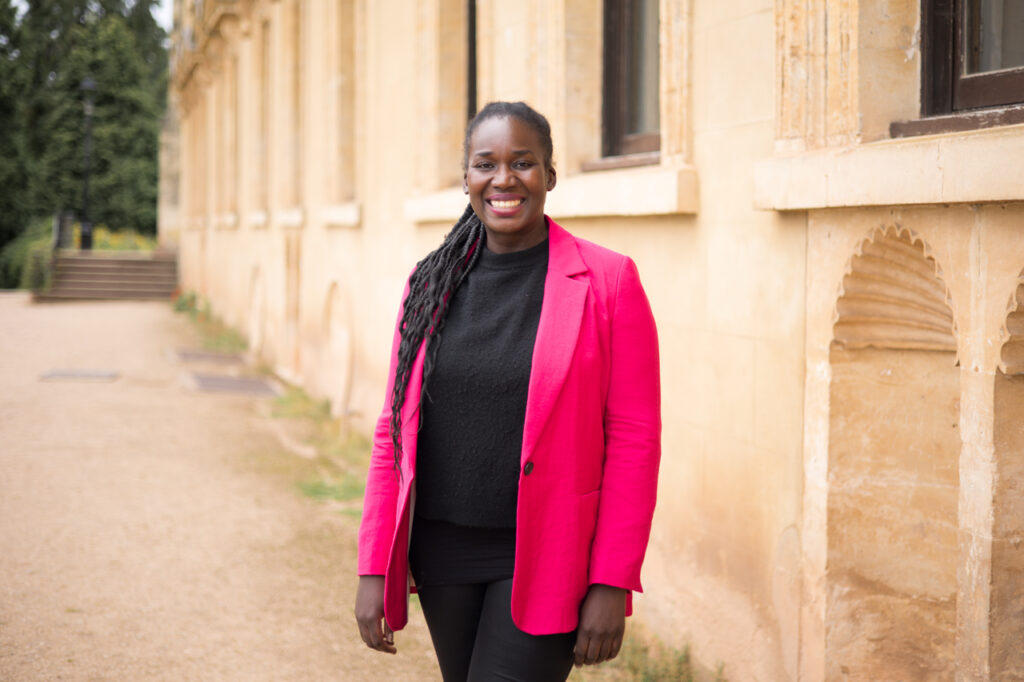
Juliet Can, founder of Stour Trust CLT, photographed outside Bristol Arts Mansion
The significance of the festival’s location did not go unnoticed. Bristol Arts Mansion was acquired by Artspace Lifespace (ASLS) in May 2018 on a ‘meanwhile’ lease. Since then, they’ve hosted a plethora of affordable, creative and inclusive exhibitions, workshops and events. Kathryn Chiswell Jones reflected on her experience running this meanwhile space:
“We initially took on Ashton Court Mansion for two years, it’s now nearly eight…. But there’s still no long term plan. It’s great to be able to come and activate these places, to have the opportunity to try new things, but then what happens when the community comes to know and love these places as public spaces? And that’s where community ownership comes in, and why these conversations are really important.”
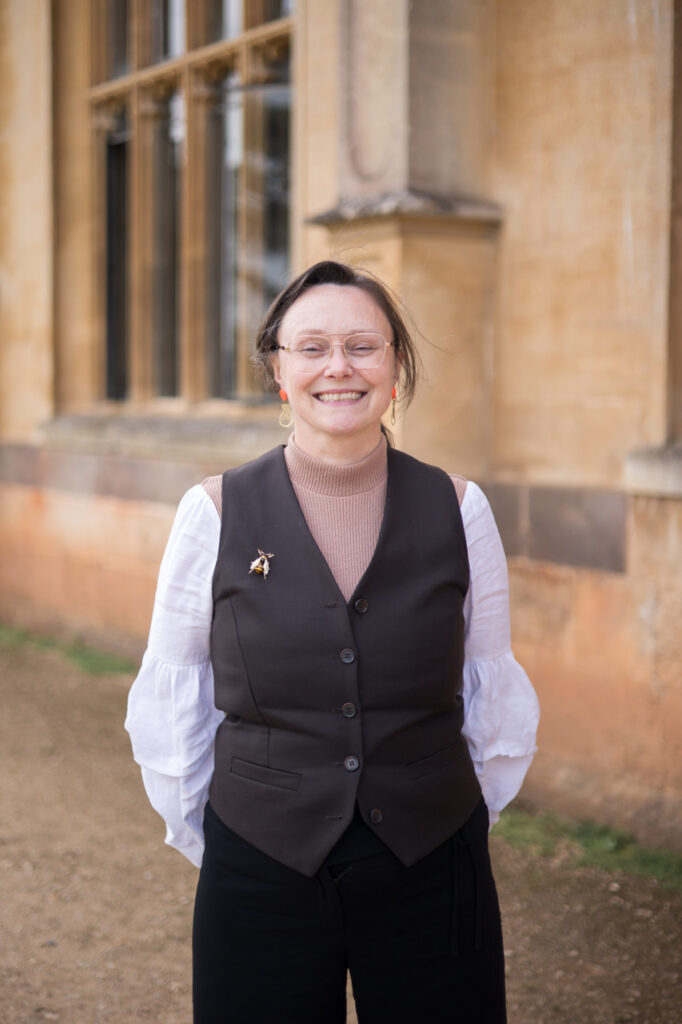
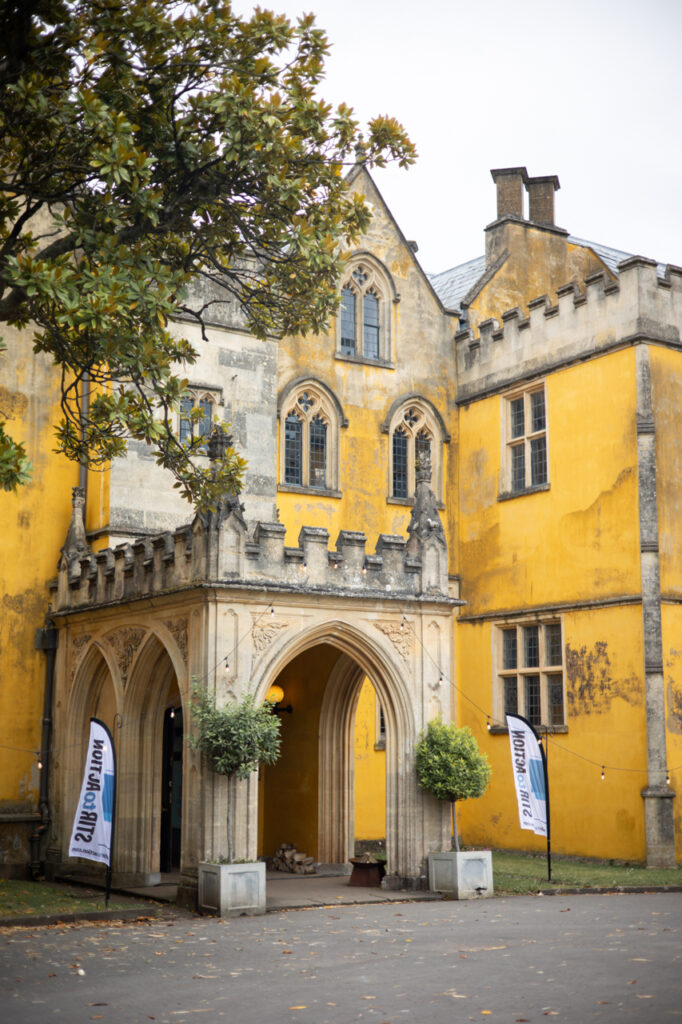
Left: Kathryn Chiswell Jones, Artspace Lifespace Manager | Right: West entrance of the Bristol Arts Mansion
Makespace’s role in this conversation emerged from the release of the ‘Meanwhile in Oxfordshire…’ impact and learning report earlier this year. The report highlighted the benefits – and limitations – of ‘meanwhile use,’ and was grounded in a commitment to spatial justice: The principle that everyone should have access to the safe spaces they need to live happy, healthy, creative and connected lives within planetary boundaries. Andy broke this concept down to 5 key elements:
1. Ownership – Localising and democratising the ownership of land /property – building towards community ownership
2. Access – Breaking down barriers to access through the development of new forms of leases and contracts – Eg Social value leases
3. Design and Development – Democratising the development process and uses of land and urban regeneration by communities driving the process project by project, or more strategically through community led plans (Check-out Wards Corner and Just Space as inspiring examples)
4. Use of space – Diversifying the use of spaces in our towns and on the high street by supporting new kinds of businesses/organisations/initiatives that create more safe, just and connected neighbourhoods
5. Governance (Decision-making) – Democratising the way neighbourhoods are governed, democratising and localising the management and stewardship (Check out Community Improvement Districts (CIDs), CLTs, Public-Common Partnerships)
As an organisation, Makespace is evolving. We began our journey by taking practical action by unlocking space; we now want to build towards community ownership, with the hope of reimagining and transforming our land and property system.
“Absolutely start where you can, start with a meanwhile lease… The possibility in those kinds of liminal and temporary spaces is inspiring. It generates fantastic energy. But as an organisation we’re now doing a lot of soul searching – a sort of refounding process – to move beyond meanwhile…
So how do we shift our thinking to avoid contributing to gentrification and hyperinflation? How can we embrace ‘seven generation city‘ thinking, promote community and self-ownership of assets, and recognize the inherent value of our living systems and infrastructure? This is the next step in our journey, alongside a terrific ecosystem of actors that Platform Places are convening.”
– Andy Edwards, Makespace Oxford
We’re on a mission to create change, to address the fundamental issues within our land and property systems that raise to the scale of the challenges we face locally and globally. We want to use ‘meanwhile-use’ as a catalyst for wider systemic change, now and for future generations.
You can read more about our emerging work, our re-founding and developed Theory of Change this autumn. Watch this space!
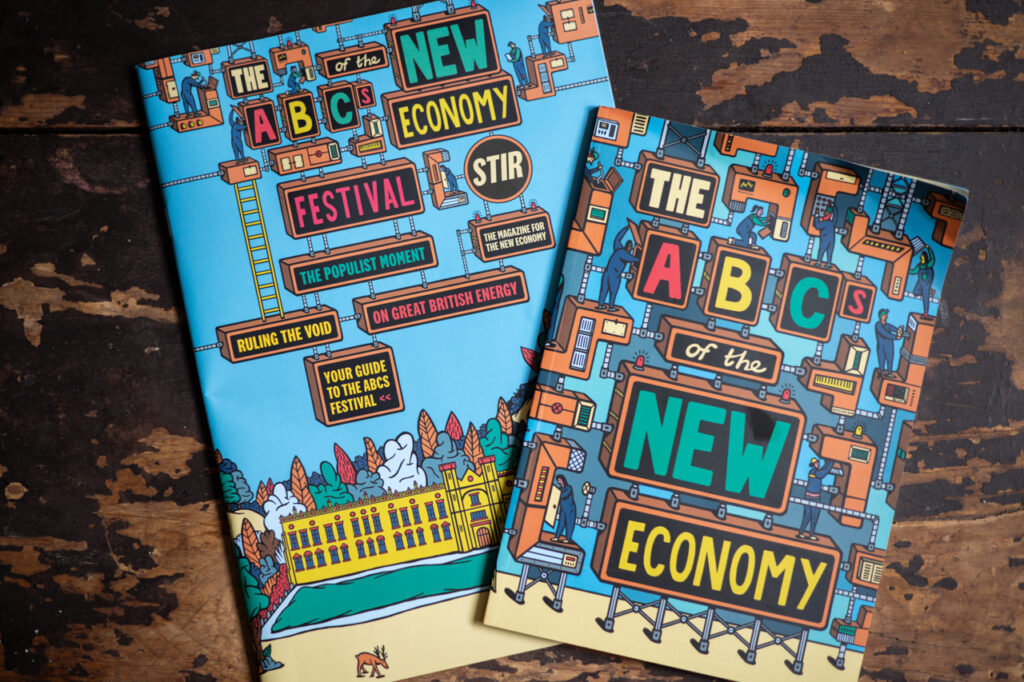
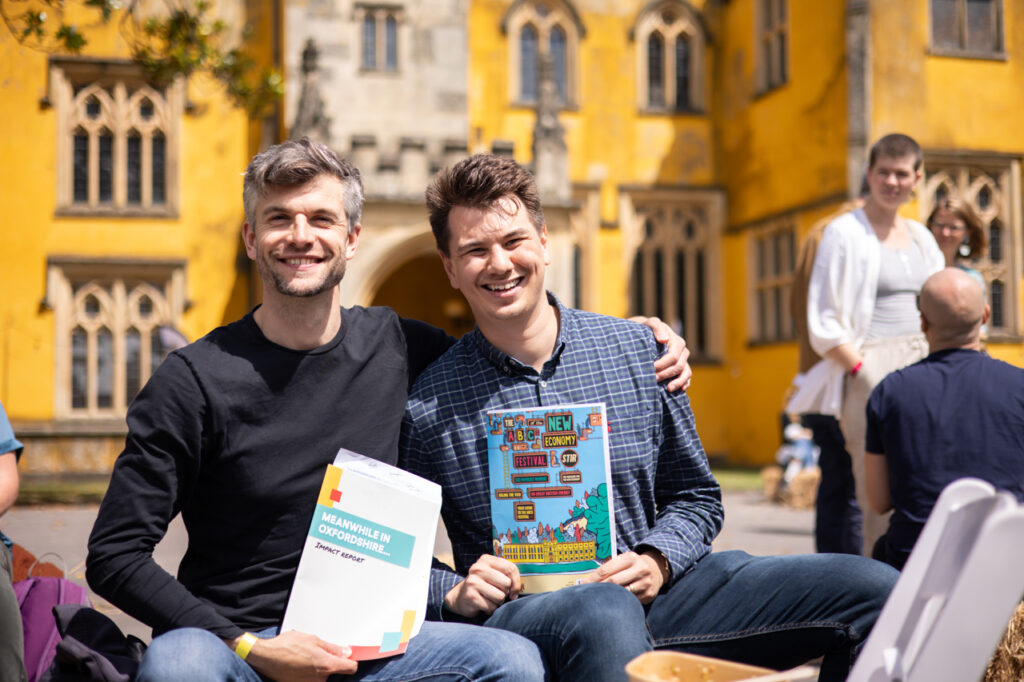
Left: July issue of the Stir to Action magazine & festival publication | Right: Andy Edwards and Alex Lui from Makespace, photographed outside Bristol Arts Mansion
If you’re interested in unlocking space in your high streets check out our full ‘Meanwhile in Oxfordshire…’ report, and read more about the project in the latest issue of STIR magazine.
Join us at Open Doors 365 on 11th September, alongside Civic Square and local organisers, to explore the question: “What if Oxford was open all year round?“

